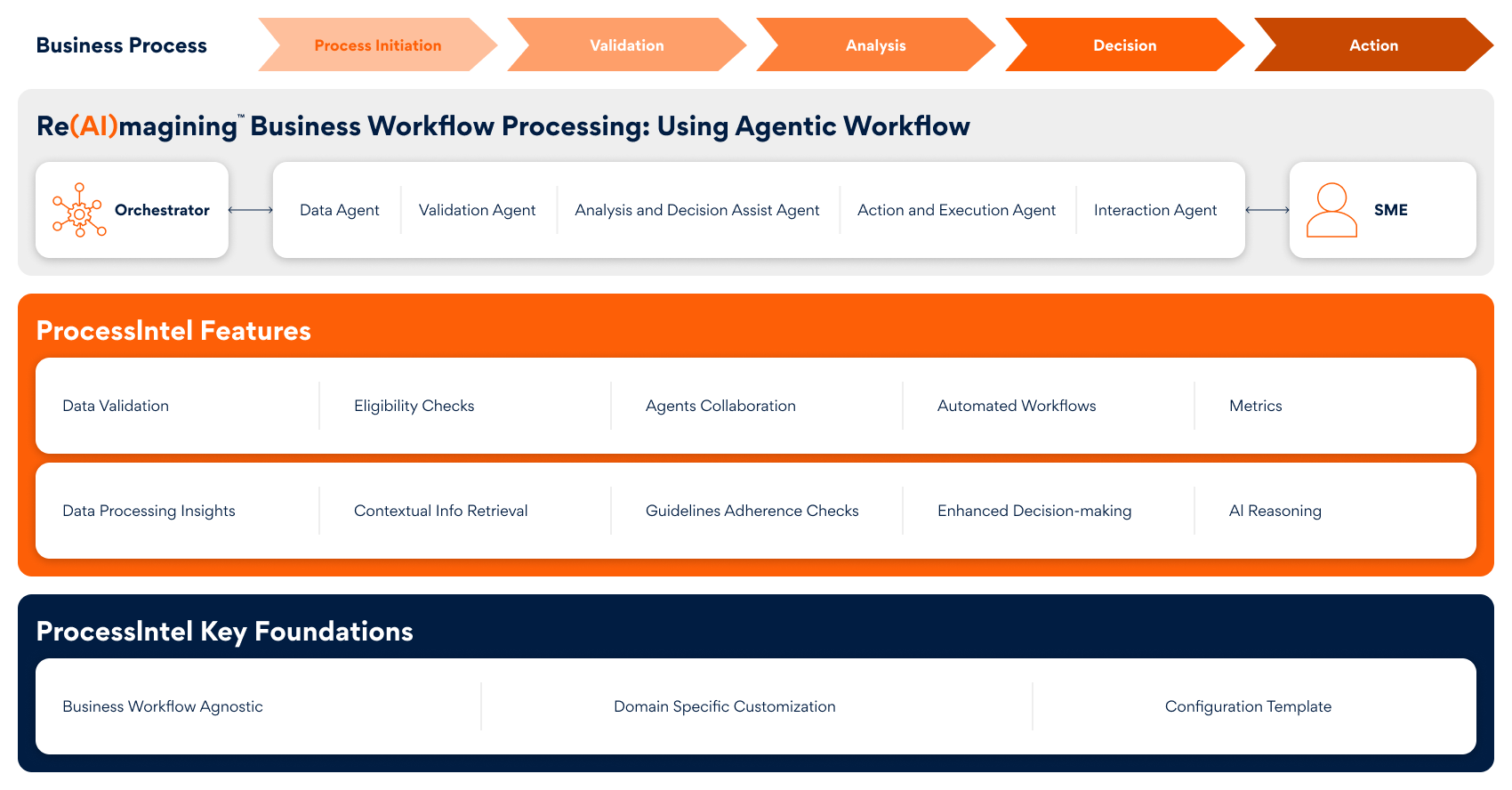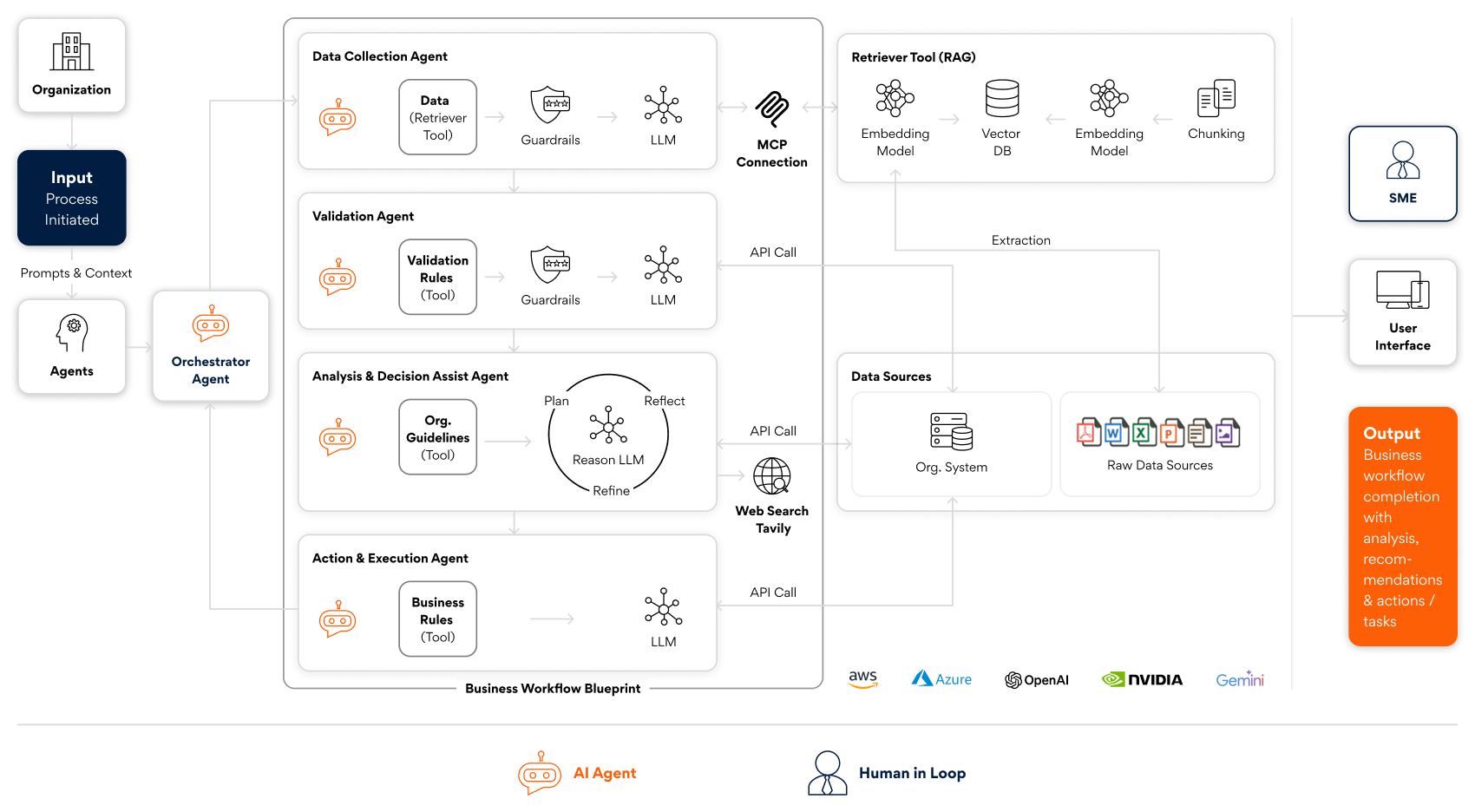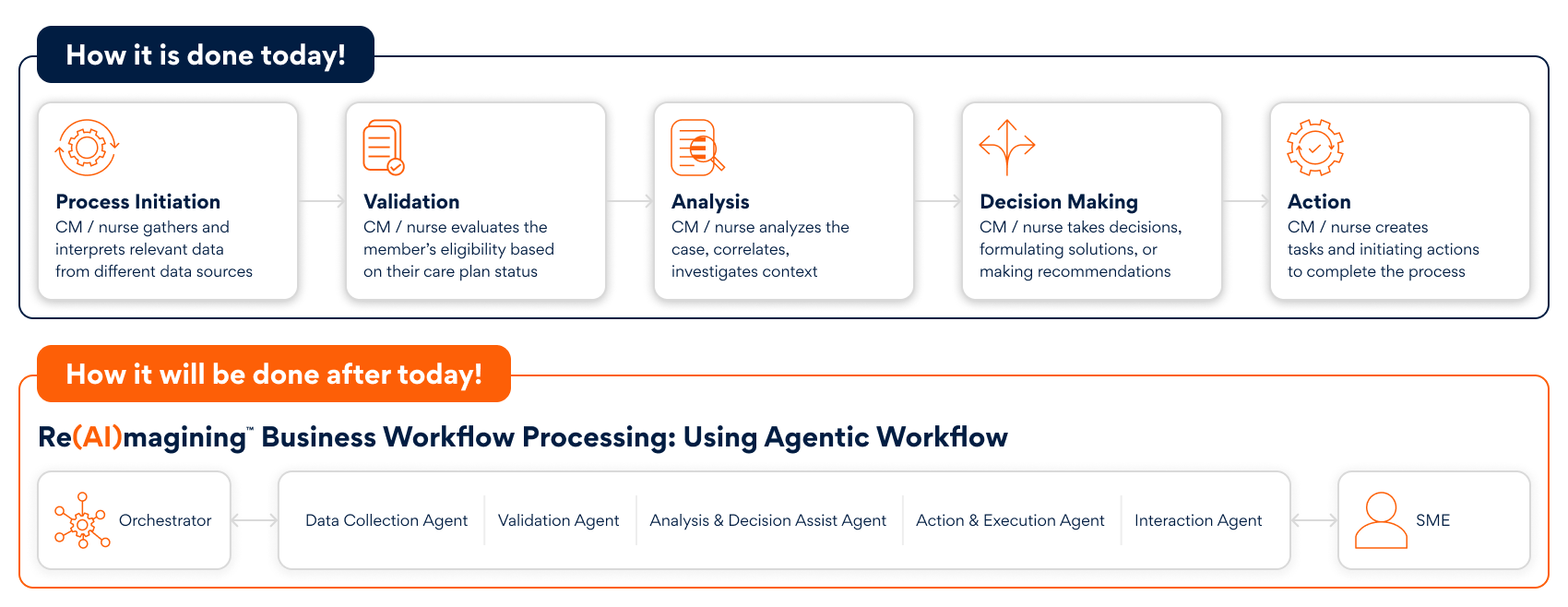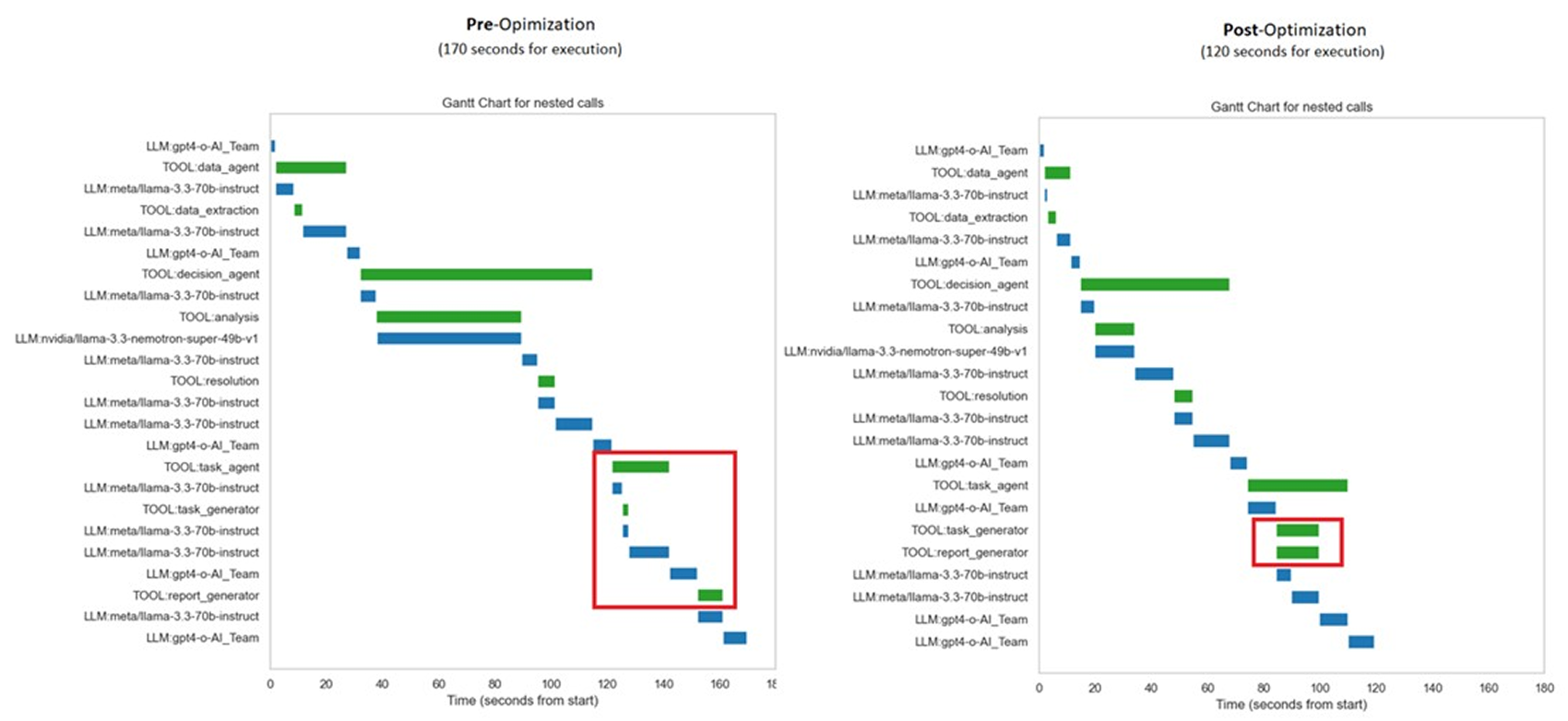Businesses are constantly looking for strategies to boost productivity, reduce costs, and elevate operational quality. Sectors such as healthcare, banking and financial services (BFSI), and telecommunications often struggle with manual workflows that limit progress and increase expenses. With the rise of Generative AI, a new approach called Agentic AI is emerging. This brings together multiple specialized AI agents—often powered by Large Language Models (LLMs)— to automate complex tasks and business processes..
Recognizing this opportunity, we introduce ProcessIntel, an accelerator platform designed to build and deploy advanced, multi-agent solutions that transform the way businesses operate. This article explores how ProcessIntel delivers that transformation.
ProcessIntel: Driving AI-Powered Collaboration with Agentic Workflows
ProcessIntel redefines how workflows are executed by shifting from linear, human-driven processes to collaborative, AI-powered operations. Through the introduction of Agentic AI into business workflows, ProcessIntel enables organizations to automate end-to-end job functions and enhance decision-making at scale.
The platform is workflow-agnostic and can be customized by domain experts for specific business use cases.
Most business workflows rely heavily on human involvement. Agentic AI changes this by enabling agents to assist humans in completing tasks more efficiently.
ProcessIntel: Transforming Business Processes with Agentic AI
Agentic, Intuitive, Fast, Effiecient and Built for Customizations.

At the core of ProcessIntel is a central YAML configuration file that defines the complete blueprint of any workflow. This provides flexibility to define the blueprint of any business process from any industry —including agents, LLMs, tools, and other required settings.
ProcessIntel supports a wide range of open source agentic frameworks, including LangGraph, Llama index, NVIDIA AgentIQ, Crew.ai and more.
The blueprints bring together multiple agents working in tandem to drive business outcomes:
- Orchestrator Agent: Coordinates the overall workflow, directing task execution either sequentially or in parallel.
- Data Agent: Automates data collection and structuring from multiple sources. It can also connect tools hosted on remote MCP servers using server-sent events.
- Validation Agent: Performs automated checks against predefined rules, policies, and validation criteria.
- Analysis & Decision Assist Agent: Uses AI reasoning (powered by LLMs) and contextual information retrieval (via RAG) to analyze data, identify patterns, predict outcomes, and propose recommendations.
- Action & Execution Agent: Automates task creation, triggers downstream actions via APIs, and ensures process completion.
Guardrails are embedded to ensure that agent actions and data usage remain compliant with business rules and policies.

Business Processes Transformed by Agentic AI
AI Agents in Healthcare: Case Management in Healthcare (Payer / Provider Segment)
In the payer segment, case management workflows are particularly ripe for transformation. Case managers and nurses often contend with fragmented systems, manual data entry, and a high degree of human intervention—making case resolution time-consuming and inconsistent.
ProcessIntel introduces Agentic AI into this workflow, empowering intelligent agents to assist at each step. These agents help accelerate decision-making, streamline routine tasks, and reduce time to resolution.
When a new case is registered, the process typically includes multiple steps and can take up to approximately 30-40 minutes per case, leading to significant delays. A typical flow includes the steps in Fig 3.
Using Agentic AI, most of these tasks can be handled by agents, allowing human professionals to focus on final review and complex decision-making:

By automating the above steps, the processing time required has been reduced to 8-10 minutes – a nearly 70% improvement in efficiency. This allows care teams to focus on more complex cases, improves speed and accuracy, and increases the overall value delivered.
Efficiency can be achieved by leveraging built-in profiling and telemetry on execution time, token usage, tool invocation patterns and more. This helps in simplifying identification of performance bottlenecks.
Fig. 4 shows results from using the profiling insights to optimize execution time, with time in seconds on the x-axis and tool and function calls in execution order on the y-axis.
The Gantt charts visualize step-wise timing in the execution of business workflow revealing synchronous tool calls deep in the agent stack. Running some of these (marked in red) in parallel along with optimizing prompts reduced runtime from ~3 minutes to 2 minutes per case.

Conclusion
ProcessIntel represents a major step forward in the evolution of business operations. As Agentic AI continues to mature, upcoming enhancements to ProcessIntel will focus on deeper integration with enterprise platforms, more sophisticated agent reasoning and planning capabilities, and a growing library of ready-to-use, industry-specific templates.
By embracing the agentic paradigm, businesses can achieve unprecedented operational excellence and maintain a lasting competitive advantage in the AI-powered landscape.
At Persistent, we’re redefining the future of work and operations using agentic workflows and agents that autonomously make decisions and automate job functions end to end.
Let’s reimagine your workflows together. Contact us to get started with ProcessIntel and Agentic AI.
Author’s Profile
Shilpa Ramteke
Senior Data Scientist, Innovation Labs AI Research, Persistent Systems







